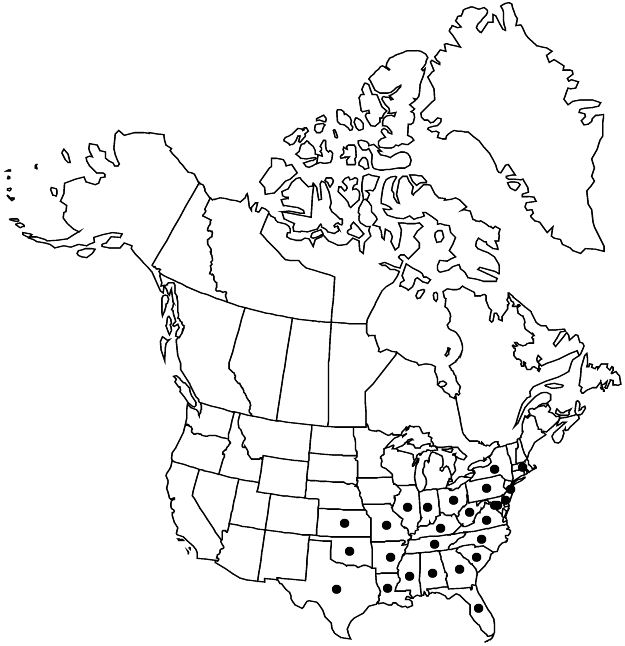Hypericum hypericoides
Inst. Rei Herb. 2: 520. 1766.
Subshrubs or shrubs, erect or decumbent to prostrate, unbranched or branched, sometimes diffuse and mat-forming, 0.5–3 or 3–15 dm. Stems: internodes 2-winged. Leaf blades oblanceolate or narrowly oblong or elliptic to linear, 7–25 × 1–8.5 mm, base not articulated, usually cuneate, sometimes rounded, with glandlike auricles, margins subrecurved, apex rounded to obtuse, midrib with 1–2 pairs of branches. Inflorescences narrowly cylindric to pyramidal, 1–12-flowered from 1–4 nodes, sometimes with branches from to 10 proximal nodes, or branching more elaborate and pseudodichotomous; pedicels erect in fruit, bracteoles distal. Flowers 10–20 mm diam.; sepals persistent, enclosing capsule, 4, unequal, outer ovate-suborbiculate to narrowly elliptic, 5–12.5 × 2–13 mm, apex subapiculate to obtuse, inner lanceolate, 1–4 × 2 mm, apex acute; petals 4, bright to pale yellow, obovate to narrowly oblong-elliptic, 6–12 mm; stamens persistent, 40–50; ovary 2-merous. Capsules narrowly compressed-ovoid to cylindric-ellipsoid, 5–9 × 2–4 mm. Seeds not carinate, 0.6–0.8 mm; testa finely linear-reticulate to linear-foveolate.
Distribution

Ala., Ark., D.C., Del., Fla., Ga., Ill., Ind., Kans., Ky., La., Mass., Md., Miss., Mo., N.C., N.J., N.Y., Ohio, Okla., Pa., S.C., Tenn., Tex., Va., W.Va., Mexico, West Indies (Bahamas, Greater Antilles), Bermuda, Central America (Guatemala, Honduras).
Discussion
Subspecies 3 (2 in the flora).
Hypericum hypericoides can be distinguished from H. crux-andreae by the two-merous ovary, narrower leaves, smaller flowers, and more richly-branched stems. It is variable in leaf and sepal shape and size; three subspecies can be recognized.
The erect bushy form (subsp. hypericoides) is most widespread and has given rise to a northern diffuse form (subsp. multicaule) in the United States and a prostrate form (subsp. prostratum N. Robson) in Hispaniola.
Selected References
None.
Key
| 1 | Plants erect, usually unbranched from base and freely branched well above ground level; leaf blades usually narrowly elliptic to narrowly oblong, broadest near middle. | Hypericum hypericoides subsp. hypericoides |
| 1 | Plants decumbent to prostrate, branching from base; leaf blades usually oblanceolate, broadest beyond middle. | Hypericum hypericoides subsp. multicaule |